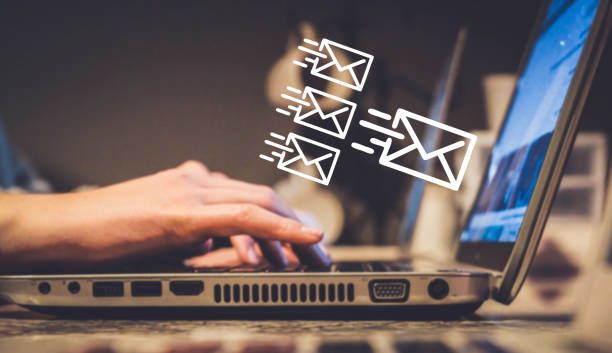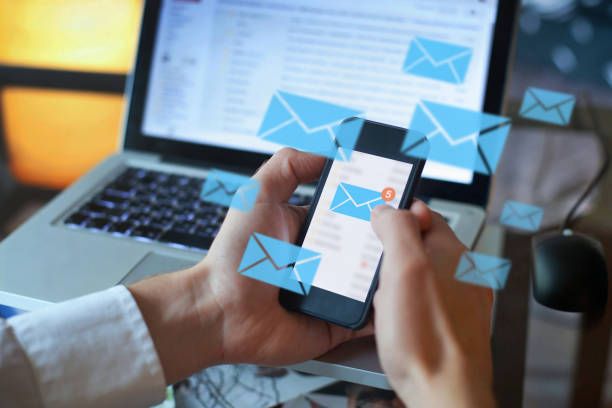GitHub has emerged as the go-to platform for developers and teams to collaborate, share code, and manage projects efficiently. While its features and capabilities are well-known, there is one aspect that often goes unnoticed yet holds tremendous value – email check on GitHub. In this comprehensive guide, we will delve into the world of email check on GitHub, discussing its significance in strengthening your workflow and ensuring the security of your account. As an expert in the field, I will explore the benefits of email check, recommend top tools and practices, and address commonly asked questions, empowering you to optimize your GitHub experience.
The Significance of Email Check on GitHub

Email check on GitHub plays a pivotal role in several aspects of your GitHub experience. Let's explore the key areas where email check proves its worth:
Account Security and Verification:
Verifying your email address is the first step towards securing your GitHub account. By confirming your email, you add an additional layer of security and ensure that only authorized individuals can access your account. GitHub utilizes email verification to prevent unauthorized access and safeguard your code repositories and personal information.
Communication and Notifications:
Email is a vital medium for receiving important notifications and updates related to your GitHub projects. Whether it's notifications about pull requests, code reviews, issues, or collaboration requests, GitHub relies on email to keep you informed. With proper email check settings, you can ensure that you receive timely notifications and stay updated on the progress of your projects.
Account Recovery

In the unfortunate event of a forgotten password or a compromised account, email check serves as a crucial method for account recovery. By linking your email address to your GitHub account, you can initiate the account recovery process and regain access to your repositories, preventing data loss and unauthorized access.

Top Tools and Practices for Email Check on GitHub

Managing Email Preferences on GitHub:
GitHub provides an intuitive interface for managing email preferences. By navigating to your account settings, you can customize the types of notifications you wish to receive via email. It's essential to fine-tune these settings according to your workflow and project requirements to avoid overwhelming your inbox while staying informed about critical updates.
Verifying Your Email Address:
Verifying your email address is a crucial step to ensure the security of your GitHub account. GitHub prompts you to verify your email when you sign up, but you can also manually verify it through your account settings. Verifying your email address not only enhances security but also enables additional features and functionality on the platform.
Remembering Your GitHub Username or Email:
GitHub provides a convenient option to remember your username or email for easier login. By enabling this feature, you eliminate the hassle of entering your credentials repeatedly. However, it's essential to exercise caution when using this option, especially on shared or public devices, to prevent unauthorized access to your GitHub account.
Email Checker Libraries and APIs
For developers looking to integrate email check functionalities into their GitHub workflows, various email checker libraries and APIs are available. These tools allow you to validate email addresses, check deliverability, and ensure the accuracy of the email data you handle. Popular libraries such as "email-checker" in Python provide robust solutions for verifying and validating email addresses.

Commonly Asked Questions
Is email verification mandatory on GitHub?
While email verification is not mandatory, it is highly recommended to ensure the security of your GitHub account and gain access to additional features and notifications. Verifying your email address helps prevent unauthorized access and ensures that you receive critical updates about your projects.
Can I change my email address associated with my GitHub account?
Yes, you can change the email address associated with your GitHub account. By navigating to your account settings, you can update your email address. However, keep in mind that changing your email address requires verification of the new email to maintain account security.
What should I do if I'm not receiving GitHub notifications via email?
If you're not receiving GitHub notifications via email, first check your email notification settings on GitHub. Ensure that you have selected the appropriate notification preferences for the repositories and projects you are involved in. Additionally, double-check your email's spam or junk folder to ensure that GitHub notifications are not being filtered.
Are there any security measures to protect my email address on GitHub?
GitHub takes privacy and security seriously. Your email address is not publicly visible on your GitHub profile unless you choose to make it so. Furthermore, GitHub provides options to control the visibility of your email address for specific actions, such as allowing only trusted collaborators to see your email address.
Can I use third-party email checkers with GitHub?
Yes, you can utilize third-party email checkers to enhance your email check capabilities on GitHub. These tools provide advanced features for validating and verifying email addresses, ensuring the accuracy of the data associated with your GitHub account.
Conclusion:
Email check on GitHub is a vital aspect of maximizing your workflow efficiency and maintaining account security. By utilizing email check tools, managing your email preferences, and following best practices, you can ensure timely notifications, enhanced security, and streamlined collaboration on the GitHub platform. Incorporate the power of email check into your GitHub experience, and witness a significant boost in productivity and peace of mind.
Remember, email check is not just a mere formality; it's a crucial step towards fortifying your GitHub presence. Embrace the practices and tools outlined in this guide, and unleash the full potential of email check on GitHub!

